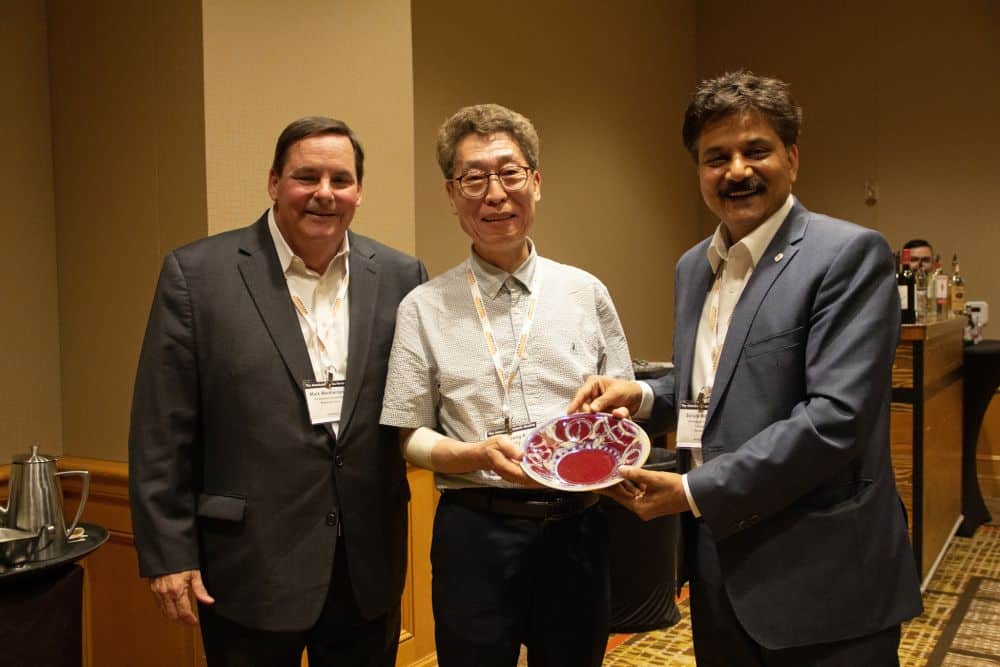
[Image above] ACerS president Sanjay Mathur, right, and ACerS executive director Mark Mecklenborg, left, present MCARE/EHS organizing co-chair Do-Heyoung Kim from Chonnam National University with a ceramic bowl to thank him for his steadfast support of the MCARE conference. Credit: ACerS
While recent years have brought many exciting developments in alternative and renewable energy technologies, there are still many materials and process-related challenges that must be overcome in the transition to a sustainable energy future.
Overcoming these challenges will require global cooperation. Fortunately, the annual Materials Challenges in Alternative & Renewable Energy (MCARE) conference provides an excellent forum for nurturing such cross-border discussions, as was evident from this year’s meeting, which took place last week in Bellevue, Wash.
Almost 170 attendees, including 25 students, from 16 countries gathered at the Hyatt Regency Bellevue from Aug. 21–24, 2023, to participate in the combined MCARE 2023 and Energy Harvesting Society meeting. The opportunity to network face-to-face was especially meaningful because it is the first time this combined meeting took place in person since the COVID-19 pandemic.
During the opening plenary session on Monday morning, MCARE/EHS organizing co-chair Krista Carlson from the University of Nevada, Reno, reflected on the history of MCARE. ACerS past president and Distinguished Life Member George Wicks and ASM International past president Jack Simon led the initial charge to launch the meeting in Florida in 2008. But as of 2013, ACerS has worked with the Korean Institute of Chemical Engineers to host MCARE in alternating years between the United States and Republic of Korea.
For this reason, “MCARE manifests the vision of being a global voice for ceramics and glass,” ACerS president Sanjay Mathur said during the opening plenary session.
Following Carlson and Mathur’s introductory greetings, Prabhakar Singh from the University of Connecticut gave the first plenary lecture on materials for electrochemical energy systems. He emphasized how this field of research has a long history spanning 200 years, but it is only recently that the potential of these systems started being realized. His talk highlighted the many opportunities to expand on this potential.
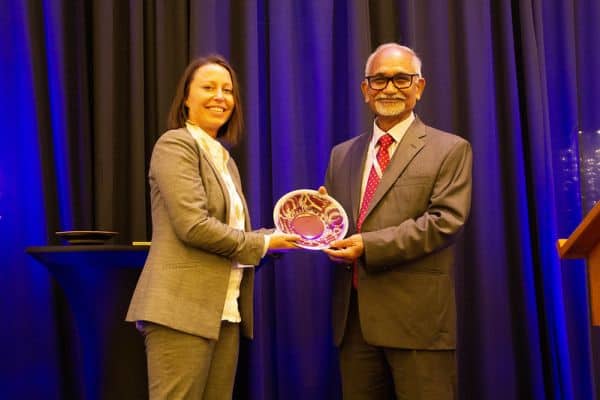
On Wednesday morning, Shashank Priya from the University of Minnesota gave the second plenary lecture on energy harvesting materials and systems. As with Singh’s lecture on electrochemical energy systems, Priya stressed that researchers are just beginning to realize the potential of energy harvesting technologies. As an example of this potential, he described several experiments conducted at The Pennsylvania State University and Virginia Tech on different energy harvesting technologies.
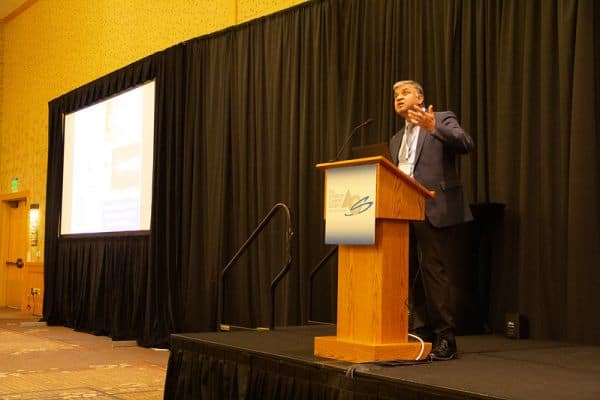
Many other alternative and renewable energy technology areas were covered during the meeting’s 11 symposia, including deep dives on hydrogen fuel production, nascent perovskite-based devices, and challenges with sustainable nuclear energy. Yet one thing was clear from all the talks—that “ceramics are going to play a very important role [in energy],” as Mathur stated during the opening plenary session.
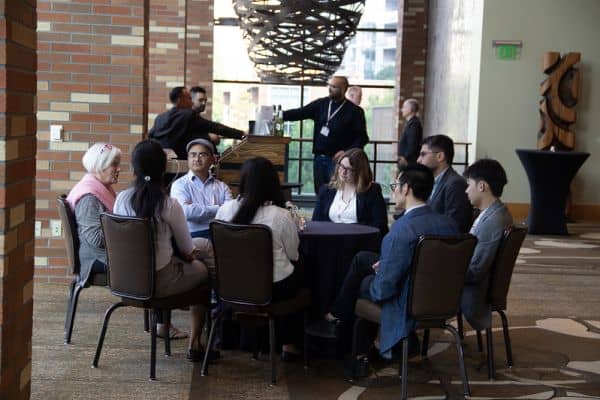
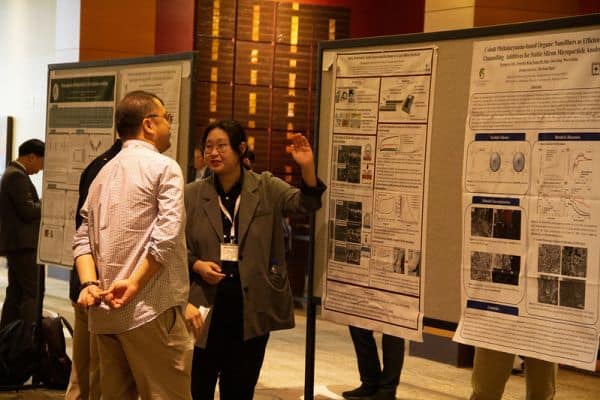
View more photos from MCARE/EHS 2023 on ACerS Flickr page. Next year, the Korean Institute of Chemical Engineers will host MCARE 2024 at the Jeju Lotte Hotel on Jeju Island, Republic of Korea, from August 19–23, 2024.
